Mathematical reasoning Numbers Worksheets for 6-Year-Olds
6 filtered results
-
From - To
Explore our engaging Mathematical Reasoning Numbers Worksheets tailored for 6-year-olds! Designed to enhance foundational math skills, these worksheets provide exciting activities that encourage young learners to think critically and solve problems involving numbers. Perfect for home or classroom use, they cover key concepts like counting, number recognition, addition, and subtraction, helping children gain confidence in their mathematical abilities. With vibrant illustrations and age-appropriate challenges, these worksheets inspire creativity while making learning fun! Dive into the world of numbers and foster your child’s analytical skills with our comprehensive resources, ensuring a solid math foundation for their future success. Start your educational journey today!
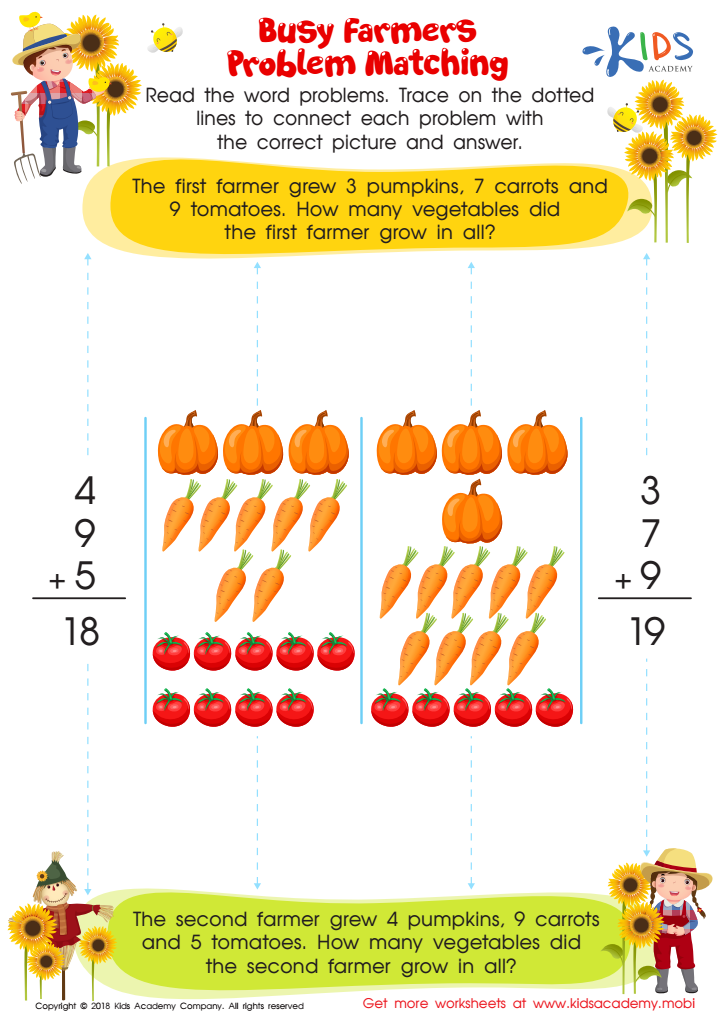

Busy Farmers: Problem Matching Worksheet
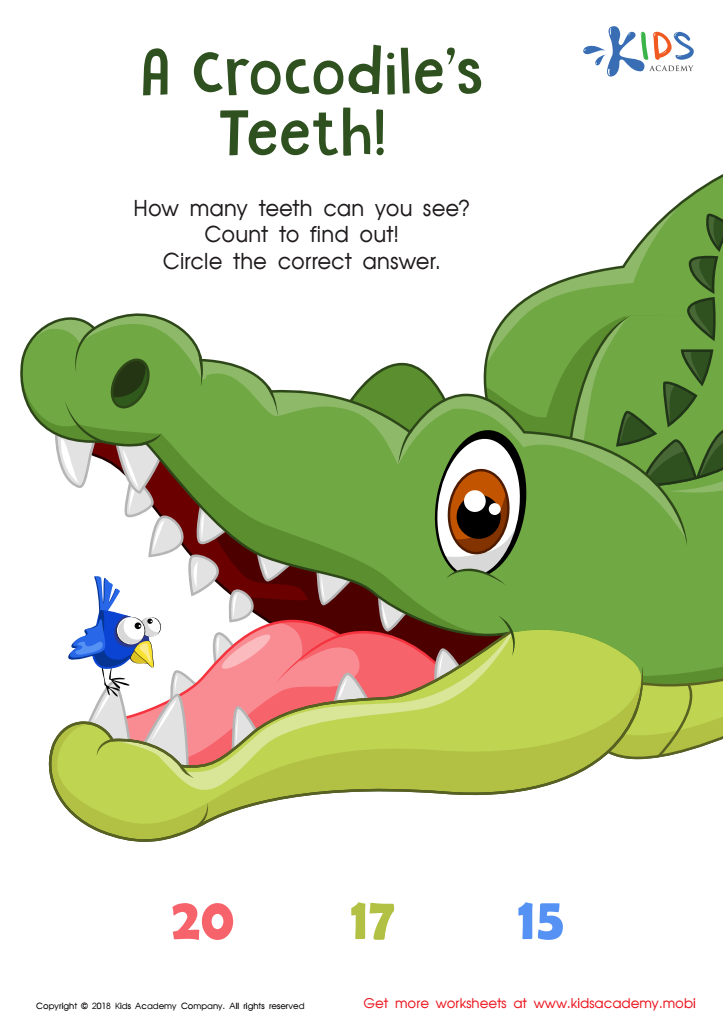

A Crocodile's Teeth Worksheet
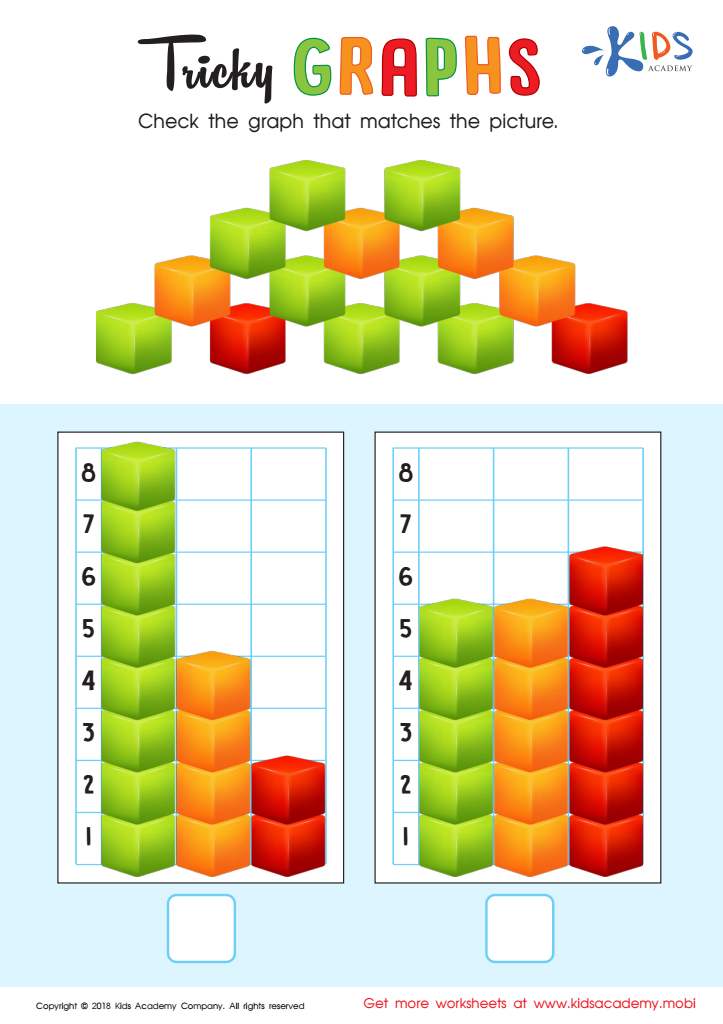

Tricky Graphs Worksheet
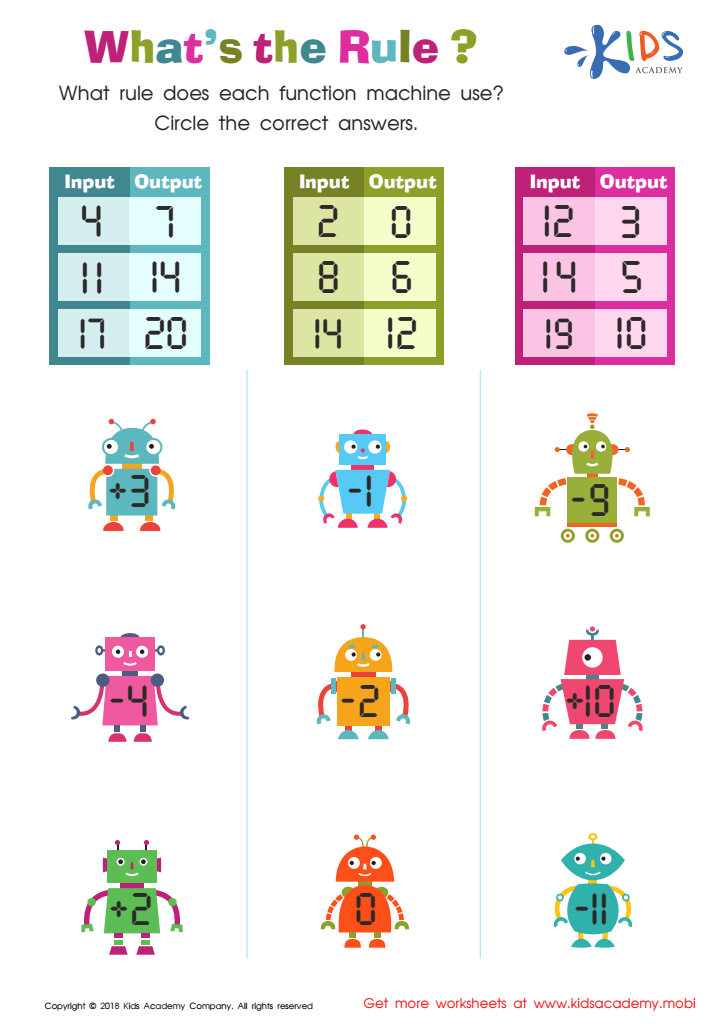

What's the Rule Worksheet
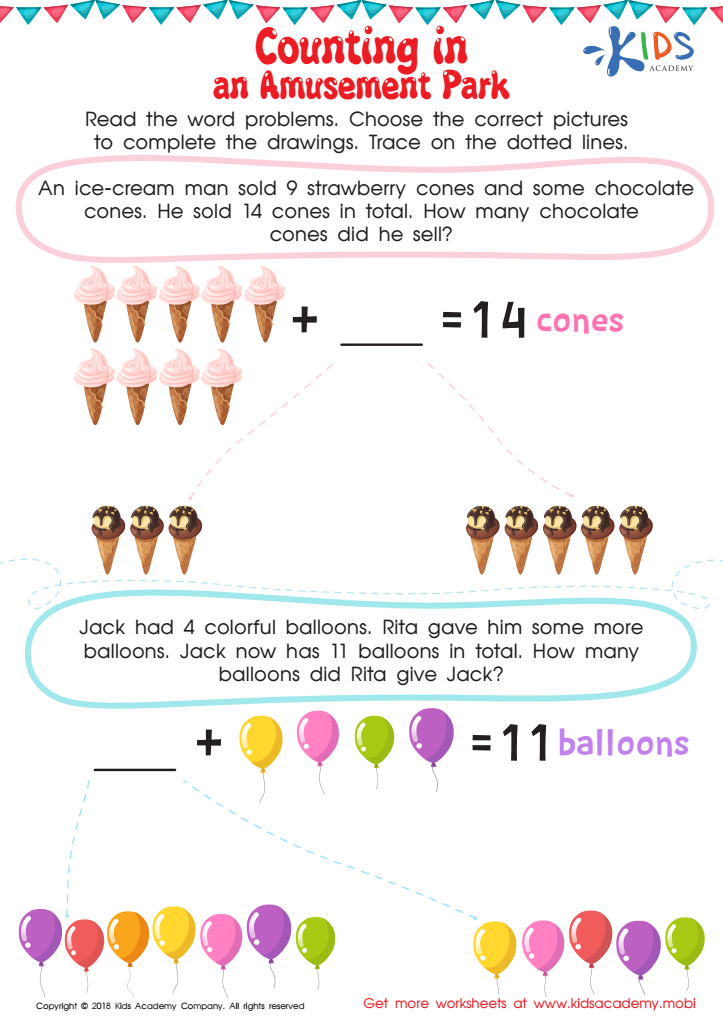

Counting in an Amusement Park Worksheet
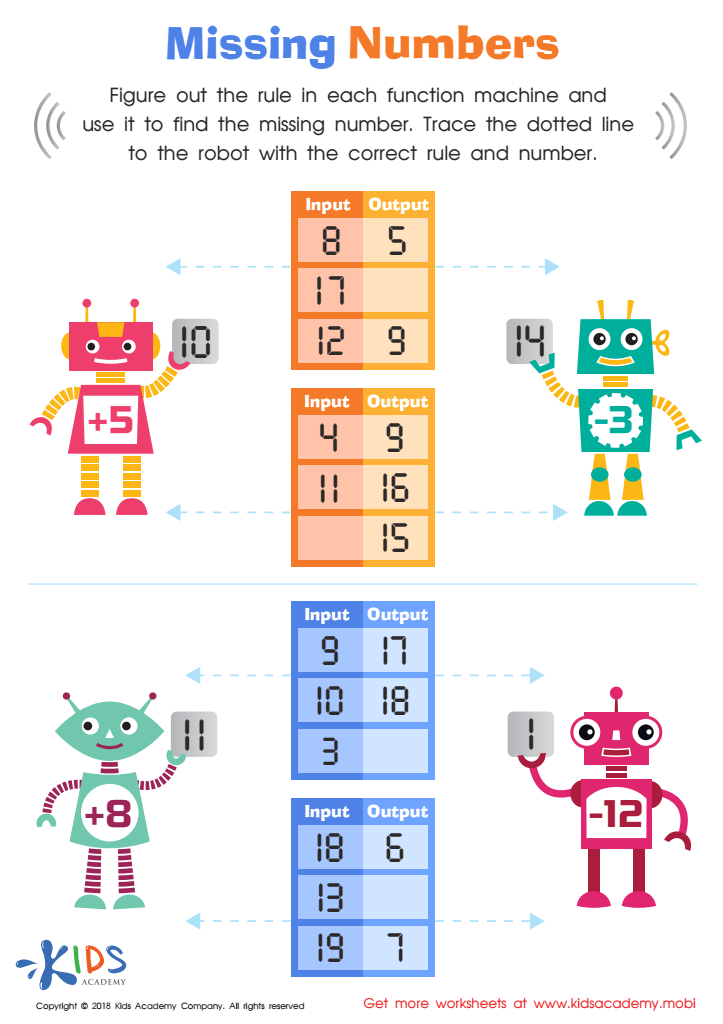

Missing Numbers Worksheet
Mathematical reasoning in young children, especially for 6-year-olds, is crucial for their cognitive development and lifelong learning skills. At this age, children begin to explore numbers beyond simple memorization. They start to understand relationships between numbers, make connections, and develop problem-solving skills. Encouraging mathematical reasoning helps them grasp concepts like addition, subtraction, and patterns, laying a strong foundation for more complex math as they progress in school.
Caring about this aspect of learning means providing opportunities for children to think critically and explore different strategies to solve problems. This fosters not only confidence in their mathematical abilities but also enhances their overall analytical thinking. Parents and teachers who engage with children in mathematical reasoning create environments where curiosity and exploration are encouraged. This leads to a deeper understanding of how numbers function in everyday life, making math relevant and engaging.
Moreover, strong reasoning skills contribute to success in other academic areas and help children develop persistence and resilience when faced with challenges. By nurturing mathematical reasoning at an early age, parents and teachers set children on a path to becoming competent thinkers and effective problem solvers in a world increasingly driven by data and quantitative skills.
 Assign to My Students
Assign to My Students




















